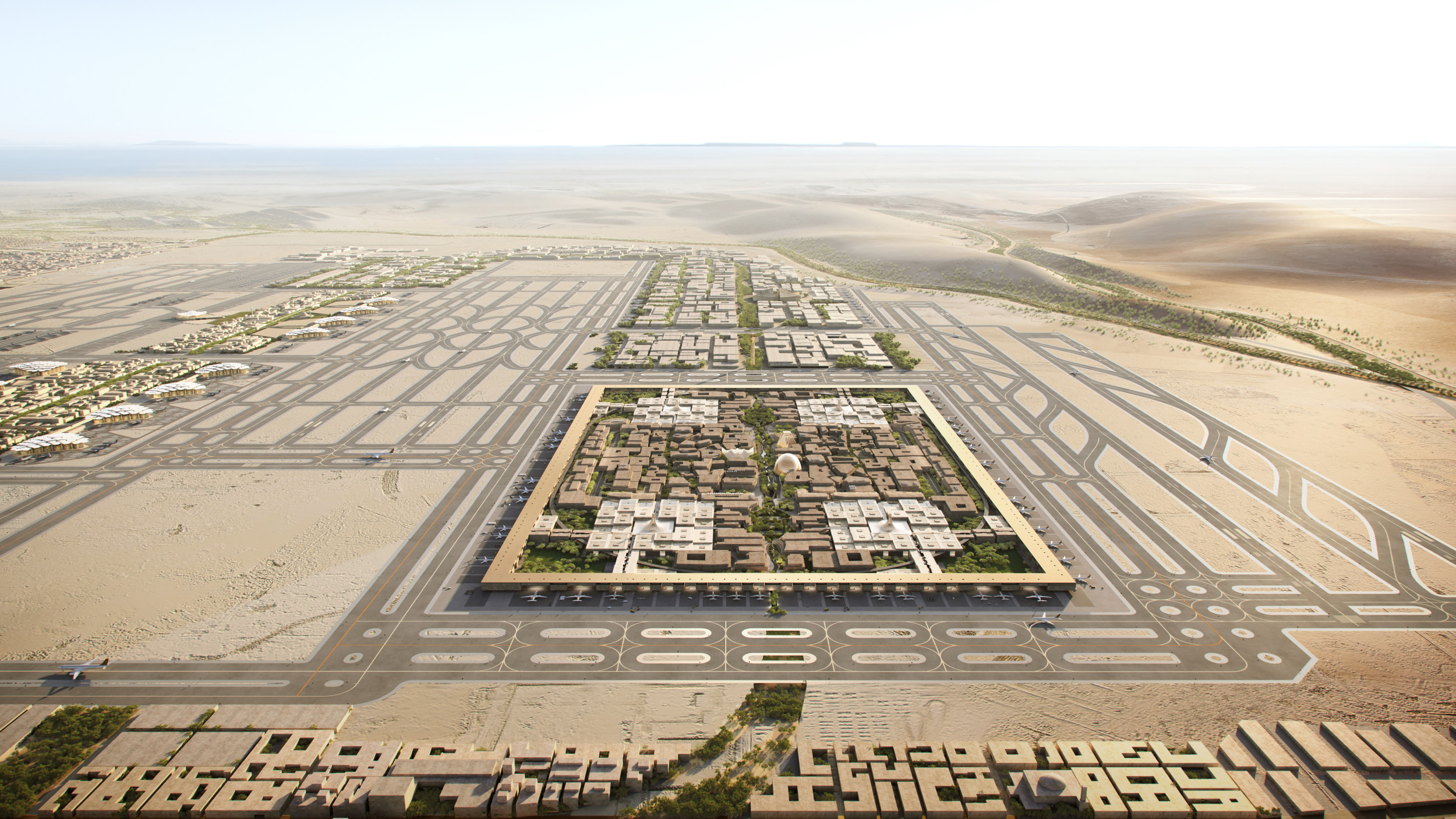Uncommon Knowledge
Newsweek is committed to challenging conventional wisdom and finding connections in the search for common ground.

Saudi Arabia is creating the world’s largest airport as part of an ambitious plan to become a global travel hub.
Scheduled for completion at the end of the decade, the project is a keystone of Mohammed Bin Salman’s ambitious Vision 2030 strategy to enhance his country’s international appeal.
Read more: Which Airlines Have the Best (or Worst) Fees?
However, the Saudi Crown Prince’s venture may encounter the delays that have marred other elements of Bin Salman’s diversification program.
A masterplan for the airport was unveiled by the country’s sovereign wealth fund, the PIF, in November 2022.
Built on the site on the existing King Khalid airport, Riyadh, the new airport will cover an area of around 34 square miles, comprising six parallel runways, residential and recreational facilities, as well as retail outlets.
Read more: How Much Are Airline Baggage Fees?
With a scheduled completion date in 2030, it is hoped the airport will be ready to greet passengers in time for the capital to host the World Expo in the second half of 2030, and ahead of the country hosting the FIFA World Cup in 2034.
According to the PIF, the airport will “boost Riyadh’s position as a global logistics hub and stimulate transport, trade and tourism.”
With an estimated initial passenger capacity of 120 million per year, rising to 185 million in 2050, the airport would become the largest in the world by passenger numbers, outstripping the Hartsfield Jackson Atlanta airport, through which around 105 million voyagers pass annually.
Read more: How to Choose a Travel Credit Card
In April, London-based construction company Mace Group was named lead consultant for the project, while the design of the airport’s infrastructure is split between Foster + Partners and Jacobs Solutions.
Foster + Partners said that the airport will have “sustainability at its core,” achieved by “by incorporating cutting edge green initiatives into its design and will be powered by renewable energy.”

The airport would support the country’s aim to transform Riyadh into one of the “top ten city economies in the world”, the PIF said, while also boosting the capitals population to between 15 and 20 million from its current 7.8 million inhabitants.
Newsweek reached out to both Foster + Partners and the Saudi sovereign wealth fund for comment on what stage of construction the airport is currently at.
The airport will also serve an auxiliary role in the country’s Vision 2030 strategy, which is the brainchild of Mohammed bin Salman Al Saud, the country’s de facto head of state and son of the eponymous King Salman.
Vision 2030, launched in 2016, is aimed at the country’s economic diversification away from its historical reliance on oil revenues, filling the resulting void through increased foreign direct investment and tourism.
“In line with Vision 30 objectives,” The PIF said that the airport will contribute 27 billion Saudi riyals annually to the country’s non-oil GDP, and create 103,00 direct and indirect jobs.
Other projects under the Vision 2030 umbrella include the urban area Neom, a city in Saudi Arabia’s Tabuk region. Neom will be the location of “The Line,” an 105 mile-long smart city powered entirely by renewable energy.
However, both projects been wracked by delays and the need to scale back their lofty construction plans.
In May, the BBC also reported that Saudi authorities had authorized the use of lethal force to clear land for the construction of The Line.
Do you have a story we should be covering? Do you have any questions about this article? Contact LiveNews@newsweek.com
Newsweek is committed to challenging conventional wisdom and finding connections in the search for common ground.
Newsweek is committed to challenging conventional wisdom and finding connections in the search for common ground.